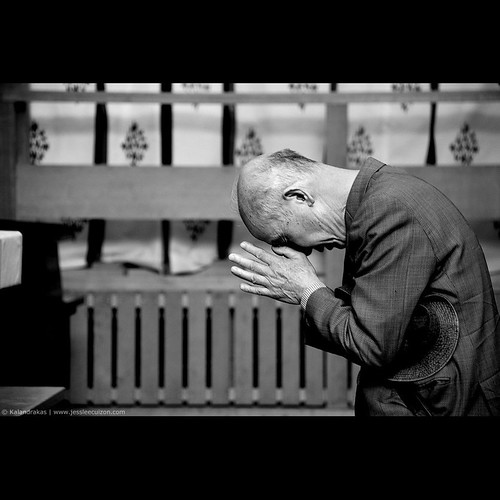 |
| Source: Photo Pin |
At painting class today, I listened to *a lot of* Bob Dylan.
In his famous song, "With God on our Side," he reflects on juxtaposition of religion and wars.
The First World War, boys
It came and it went
The reason for fighting
I never did get
But I learned to accept it
Accept it with pride
For you don't count the dead
When God's on your side.
When the Second World War
Came to an end
We forgave the Germans
And then we were friends
Though they murdered six million
In the ovens they fried
The Germans now too
Have God on their side.
I'm not writing tonight to debate religion.
Instead, I'd like to describe "attention bias" (the father of "cognitive biases") through the example of a religious person.
My dear friend, Wikipedia, states:
An attention bias is the tendency to pay attention to emotionally dominant stimuli in one's environment and to neglect relevant data when making judgments of a correlation or association

Researchers like to study "attention biases" through a "2x2 matrix" (just like BCG -- see 1:20 here).
People are often subject to this type of bias when asked "Does God Answer Prayers?"
For good reasons, many religious people would say "yes" -- remembering an answered prayer from the past. These people are also accepting and overemphasizing data from the top left hand corner (AP / BP) -- i.e., Prayed for X, Received X.
On the other hand, these same people often de-emphasize or rationalize the lower left hand corner (AP/BN) -- i.e., Prayed for X, Did NOT receive X. Maybe it just wasn't God's plan...
Because of this attention bias, a person can believe, "Yes, God Answers Prayers" without fully accounting for the data points in other 3 squares -- AP/BN, AN/BP & AN/BN.
Therefore, as Dylan wrote, a person with an attentional bias towards religion could say "God was on our side" during WWI or WWII if: A) he/she prayed to win the war and B) he/she won the war -- even if there were other, conflicting data points present like the Jewish person that A) prayed to live, B) died in a concentration camp.
We are fascinating creators.
My dear friend, Wikipedia, states:
An attention bias is the tendency to pay attention to emotionally dominant stimuli in one's environment and to neglect relevant data when making judgments of a correlation or association

Researchers like to study "attention biases" through a "2x2 matrix" (just like BCG -- see 1:20 here).
People are often subject to this type of bias when asked "Does God Answer Prayers?"
For good reasons, many religious people would say "yes" -- remembering an answered prayer from the past. These people are also accepting and overemphasizing data from the top left hand corner (AP / BP) -- i.e., Prayed for X, Received X.
On the other hand, these same people often de-emphasize or rationalize the lower left hand corner (AP/BN) -- i.e., Prayed for X, Did NOT receive X. Maybe it just wasn't God's plan...
Because of this attention bias, a person can believe, "Yes, God Answers Prayers" without fully accounting for the data points in other 3 squares -- AP/BN, AN/BP & AN/BN.
Therefore, as Dylan wrote, a person with an attentional bias towards religion could say "God was on our side" during WWI or WWII if: A) he/she prayed to win the war and B) he/she won the war -- even if there were other, conflicting data points present like the Jewish person that A) prayed to live, B) died in a concentration camp.
We are fascinating creators.
 |
| Source: Photo Pin |

No comments:
Post a Comment